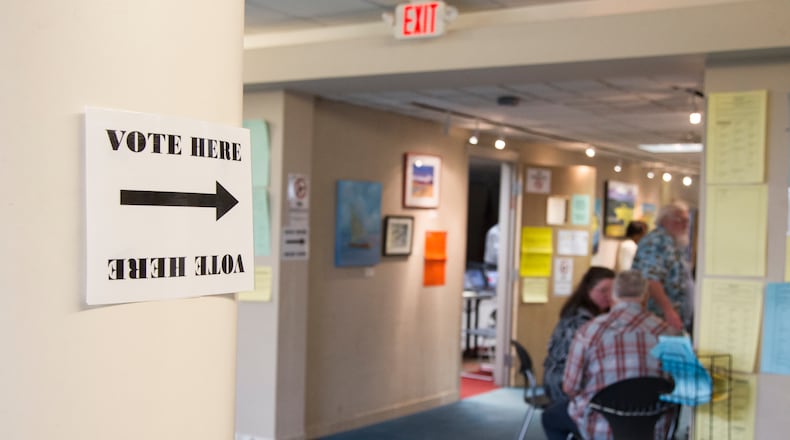Voters across Georgia will return to the polls July 24 for runoff elections that will decide some of the state’s most important races:
What’s at stake
The runoffs will determine which candidates for governor, Congress and other offices advance to the Nov. 6 general election.
Runoffs are required in Georgia for races in which no candidate won more than 50 percent of the vote in the May 22 primary election.
Who’s on the ballot
The top race on Republican Party ballots is the contest for governor between Lt. Gov. Casey Cagle and Secretary of State Brian Kemp. The winner will face Democrat Stacey Abrams in the general election.
Other Republican races include matches for lieutenant governor between state Sen. David Shafer and former state Rep. Geoff Duncan, and for secretary of state between state Rep. Brad Raffensperger and former Alpharetta Mayor David Belle Isle.
On the Democratic Party side, former U.S. PTA chief Otha Thornton and Georgia Association of Educators president Sid Chapman will compete to challenge incumbent Richard Woods for state superintendent of schools.
Runoffs will also determine two Democratic nominees for Congress.
Georgia State University professor Carolyn Bourdeaux faces David Kim, a Duluth resident who started a tutoring business, in a race for the state’s 7th Congressional District. The winner will challenge Republican Rep. Rob Woodall. In the 6th Congressional District, gun control advocate Lucy McBath is opposed by Kevin Abel, a Sandy Springs businessman. The winner will face Republican Rep. Karen Handel.
How to vote
Georgia voters aren’t allowed to switch political parties between the primary election and the runoff.
Voters who participated in the Republican Party primary can only vote in the Republican runoff, and voters who cast ballots in the Democratic Party primary must choose between Democrats in the runoff.
Georgia has open primaries, which means voters were allowed to choose either Democratic or Republican ballots without having to register with that party.
For those who didn’t vote in the May 22 primary, they can pick the party of their choice in the runoff.
Long campaign
The July 24 runoff is nine weeks after the primary, and then voters will have to endure another 15 weeks of election-year campaigning before the Nov. 6 general election.
The wait before the runoff was caused by a federal judge's ruling in 2013 that Georgia volated a requirement to give Americans living abroad enough time to mail their ballots. A federal law requires election officials to send absentee ballots to military and overseas voters at least 45 days before a federal election.
Early voting
Voters can begin casting their ballots at in-person advance voting locations on July 2. Early voting lasts three weeks leading up to Election Day.
On Election Day on July 24, voters must report to their regular neighborhood precincts.
What’s next
The winners of the primary election runoffs — along with candidates who won a majority in the May 22 primary election — will compete in the general election Nov. 6. The general election will include nominees from Democratic, Republican and Libertarian parties.
About the Author
Keep Reading
The Latest
Featured



